Better Discernment & Interest Rate Hike Cycle
The present correction in equities, currencies and commodities have a lot to do with interest rate cycle perception. The present Fed funds rate is 5%. Most big investment houses think that the hike will top out at 5.5%, thus spelling the end of the cycle. However, recent data have prompted some of the bulge bracket houses to up their estimation of the top of interest rate hike for the Fed funds at 5.75% - 6%. Companies which have upped their forecast recently include Lehman Brothers, JP Morgan, Credit Suisse and Barclays Capital.
While the few cited companies are big, they are still not the big swinging dicks yet, unless a rerating is made by more influential houses such as Goldman Sachs, Merrill Lynch or Citigroup - there would not be much reverberations. Still, it is worthwhile to note the developments. Methinks, the "second tier" research houses have jumped the gun here. It is hard to fault them really, if you work for Credit Suisse or Lehman Brothers, you are basically just shy of the top tier, and for your company to be noted, you have to stand out or push the envelope even further. No point revising your prediction after Goldman or Merrill have upped their forecast, then you are just a "follow the leader" second rate player. To stand out more, you take riskier stands, you extrapolate data further than necessary or safe, you make conclusions faster than necessary ...
The Fed should up Fed funds by 25 basis points in a few days time. Markets will be calmed by this and rally. Should Bernanke swallow his balls and up it by 50 basis points to 5.5%, I betcha you would see a mega rally in equities as that would signal to all players that there is a high likelihood that rate hike cycle peak has arrived. If it has reached the top, it can only go down. One of the worst thing Bernanke could do is not do anything. If there was no rate hike, I believe the equity markets will drop another 3 to 5 percent in value. Thats the silly thing about markets, you can study all the finance and economics in university, and you'd find that the market and players are forward discounting thus forcing you to arrive at a proper conclusion but then reversing it due to it being "discounted".
I am still a believer that the rate hike will top out at 5.25% or 5.5% the most. The reason being at 5.5%, the consumers will ease by themselves and the housing will also contract by themselves. At those rates, the percentage of income that goes towards mortgage repayments or credit cards would tilt them over. Hence Bernanke would not, should not, have to raise rates further following that.
Following the correction in almost every asset class, there is real discernment and judgment plays in investors who decide to plough back into the markets. Emerging markets as a whole went charging up for most of the last 12 months, and that include their currencies. The whole conspiracy to weaken the US dollar succeeded. In May, the commodity price bust saw many emerging markets' currency faltering as well, as speculators who exited the markets also converted back to dollars, euros, yen and pounds. However not all currency suffered the same fate, certain emerging markets' currency held up very well, in fact continued to gain ground against the dollar. They all have one thing in common, they all have substantial surpluses (i.e. good balance sheet). Currencies which maintained good strength include the Brazilian real, Malaysian ringgit and South Korea won. There are bigger implications, not just on currency front, in that these currencies would lead to better rating on its equity markets, as there is not a sufficiently deep enough bond market in their currency. The perception of extra returns on currency will also help investors' yield calculations for the country's respective equities.
The reverse is true, countries which have widening or growing external deficits were continued to be sold down even as I write this. Big sliders include the New Zealand dollar, Turkish lira, Icelandic krona and South African rand. The South African rand fell to a two year low yesterday. Better discernment among investors is a welcomed relief.
skip to main |
skip to sidebar








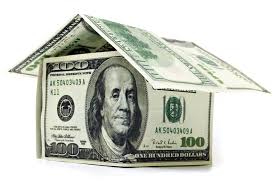

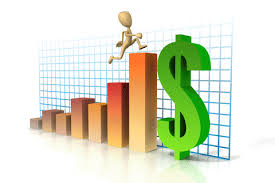
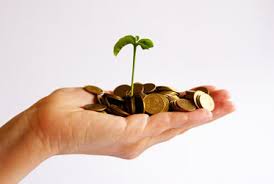
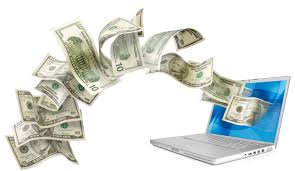
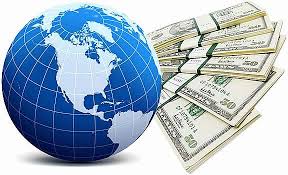
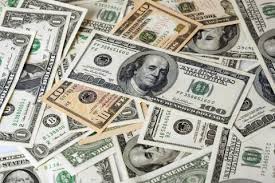
tips, tricks, business, news, information, services, business, SEO, internet, websites, blogs, business, news, health, facebook, twitter, automotive, online marketing, unique, funny, zodiac, sport
Blog Archive
-
▼
2006
(308)
-
▼
June
(37)
- World Cup 2006 UpdateQuarter FinalsGermany vs Arge...
- Rise Of Buyout Funds & ImplicationsCompanies Cash ...
- No title
- Understanding BubblesThe present day financial mar...
- World Is Getting Smaller 2M&A Deals Shaping Our Wo...
- Global Demand For Biofuels & MalaysiaCarotech and ...
- Research RatingsGoldman On The Right TrackFinally,...
- World Is Getting SmallerM&A In The WorksThis will ...
- Banking Irregularities In ChinaMainland auditors h...
- Snippets, Snipes & Snides23 - 27 June 2006Transmil...
- Better Discernment & Interest Rate Hike CycleThe p...
- The Invincibility Of IRISDespite being the butt of...
- Questions For Dr.MBy P. Gunasegaran, Group Exec Ed...
- World Cup 2006 Update21June 2006Best Performers To...
- Proton, Bridge, APs, Sand In Face & Stuff Like Tha...
- The Parable Of Vonage & IrisOnce upon a time in a ...
- Not Even One Pro Understands The New FTSE Bursa In...
- Malaysia - Notable Corporate DevelopmentsAstro Pas...
- Second Chance Club For High-AchieversIn our career...
- AOL / Time = PCCW / HK TelecomHong Kong phone oper...
- Banks Will Have To Reinvent Lending SoonThe Rise &...
- Malaysia Grappling With Futher Price IncreasesGas ...
- Temasek - Oops, I Did It Again!Temasek, the invest...
- Malaysia Economics In A NutshellFirst quarter 2006...
- Da Vinci Code Meets Mission Impossible 69Carlyle G...
- There Is Hope YetIn the late 90s, the entire natio...
- "Sell In May" Rings True & The Madness Of CrowdsTh...
- Kofi Annan's World CupA Worthwhile Opinion By Kofi...
- Using Business Models To Predict Golden Boot Winne...
- Snippets, Snipes & Snides8 -12 June 2006China Bour...
- Petronas Profit FYE March 2006This bit of news pro...
- Taking Stock Of StocksRefresh Your Page/MindEvery ...
- HK Property Investing, The OZ WayMacquarie's Domin...
- Snippets, Snipes & Snides1 June - 6 June 2006The G...
- Cathay Breathes Dragon Fire In SIA's FaceShares of...
- NYSE / Euronext & Asian ExchangesNYSE Group Inc. a...
- Astro & Scomi Covered WarrantsAn Early ValuationBo...
-
▼
June
(37)
No comments:
Post a Comment